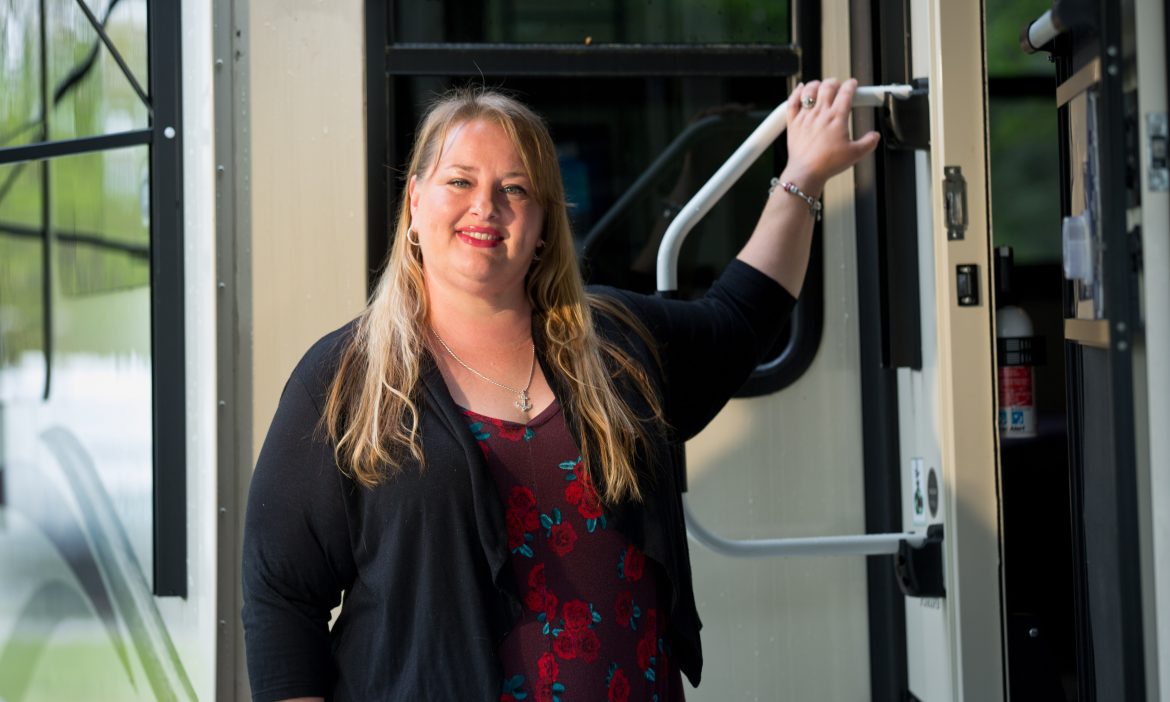There are many reasons people may not regularly visit a doctor: anxiety, misinformation, cost, lack of transportation. As a care coordinator at BlueCross, Jennifer Carroll has heard — and overcome — them all.
Recently, she helped a member with a challenge she’d never faced before.
“I had a member who we’ll call Mr. Jones who wasn’t going to his primary care provider,” Jennifer begins. “The team couldn’t figure out why because he can drive and he knows he needs to go so they can keep an eye on his health conditions. So I called him, and over the course of our conversation, I learned that while he could get to the office, the wheelchair ramp was too steep for him to navigate on his own. When I learned that, I knew what I needed to do.”
Jennifer called the office and explained the situation. She and the staff quickly came up with a solution.
“We got Mr. Jones a contact at the office who he can reach out to directly when he arrives,” Jennifer says. “Now all he has to do is text or call when he’s there and that person helps him get up the ramp and into the building.”
After coordinating this change, Jennifer set up Mr. Jones’ next appointment, and she followed up after. This time, he showed up.
“Results like that are why I love my job,” Jennifer says. “For Mr. Jones, I know I made a difference.”
Unearthing the root of the problem
As a nurse, Jennifer has always been focused on getting results.
“If something’s wrong and there’s a way to fix it, I want to fix it,” she says. “And if there’s not a way to fix it, I set about finding a way.”
She found her work in hospitals and patient-centered medical homes satisfying, but she wasn’t able to devote as much time to each patient as she hoped. That changed when Jennifer joined BlueCross.
“As a nurse in a hospital, you’re always in a rush,” she says. “Now if I’m on the phone with a member, I can talk to them for as long as I need to about their concerns. Sometimes I’ll start talking with them about their disease and find out their electricity is off.”

“When you know what’s going on in someone’s whole life, it’s easy to understand why health isn’t their top priority. And I can do something about it.”
In those situations, Jennifer escalates the case to get the most pressing problem taken care of first.
“Whether it’s working to get someone’s water or heat turned back on or connecting them with someone who can help get them a proper wheelchair, I have those resources at my fingertips,” she says. “That’s a beautiful thing.”
Educate and act
As a care coordinator, most of Jennifer’s time is devoted to patients who have chronic conditions such as diabetes, heart disease, COPD, asthma or metabolic syndrome. She reaches out to coordinate screenings, appointments and medications , of course, but often finds herself holding impromptu one-on-one educational sessions.
“There’s almost always something I can bring to someone’s attention,” she says. “Even if the person has had diabetes for 10 years and they know an A1C is a blood test, they may not know how their blood sugar affects their A1C. Or they may know that they need to lose weight, but they don’t realize a registered dietician is covered under their insurance.”
“I hear a lot of, ‘Oh that’s a good idea!’ or ‘I didn’t know that.’ To me those are the best words in the world.”
Ultimately, understanding and improving patients’ lives is not overly complicated for Jennifer, but it does take time — time she never had before as a hospital nurse.
“At BlueCross I can spend 30 minutes on the phone for one reason, and then I can call my member back an hour later or the next day to talk through their next challenge,” she says. “I have the ability to spend as much time as they need. I wish all nurses had that.”

